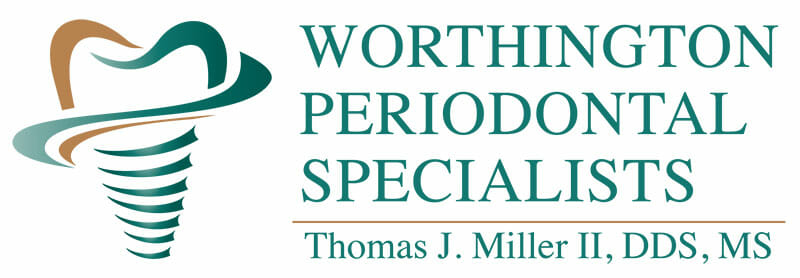If Your Gums Bleed When You Brush, Floss or Eat You May Have Gum Disease
Schedule Your Gum Disease Consultation Today! Appointments
Sore and painful gums should not be ignored. If you have bleeding gums, set up an appointment for an oral evaluation with Dr. Miller as soon as possible.
Here is a closer look at some common causes of bleeding gums:
- Gum Disease
- Medications
- Pregnancy

The health of your mouth plays a role in the health of your entire body, so any signs of gum disease need to be taken seriously. Bleeding gums are one of the symptoms of gum disease and can be a sign that your gums have become inflamed or infected.
- Aggressive Brushing
- Hormonal Changes During Pregnancy
- Ill-Fitting Dentures
- Improper Flossing
- Infection - Either Tooth or Gum Related
Featured Services
- Bone Grafting
- Bruxism Teeth Grinding
- Chao Pinhole Surgical Technique (PST)
- Dental Implants
- Gingivectomy
- Guided Tissue Regeneration
- Gum Grafting
- Osseous Surgery
- Periodontal Maintenance
- Periodontal Plastic Surgery
- Ridge Augmentation
- Ridge Preservation
- Scaling and Root Planing
- Sedation
- Sinus Lift
- TMJ
- Tooth Extraction
For New Patients
Bleeding gums can be a sign of more serious health problems, including gum disease. The health of your mouth plays an important role in your overall health and treatment should not be delayed. Bleeding gums are one of the signs you are suffering from gum disease, but also is a sign your gums have become inflamed or infected. Bleeding gums tend to be sore and painful and should not be ignored. For patients experiencing bleeding gums contact Dr. TJ Miller II, trusted periodontist for Worthington and Columbus, OH and surrounding areas.
Gum disease is a common cause of bleeding gums, usually a result of poor oral hygiene. If you do not practice a daily oral hygiene routine, bacteria builds up, causing inflammation of the gums. The inflammation turns the gums red, makes them swollen and bleed. Gingivitis is the early stage of gum disease and can be reversed with early treatment and a good, daily oral hygiene routine.
If untreated, gingivitis progresses into advanced stage gum disease, known as periodontitis. In this advanced stage, bone and tooth loss are common. Periodontal disease has no cure but can be managed through periodontal therapy, cleanings and meticulous homecare. Regular screenings for periodontal disease are an important part of your dental care to detect the presence of the disease early.
Medications can also be a cause of bleeding gums. Medications such as aspirin, blood thinners, NSAIDs (non-steroidal anti-inflammatory drugs), birth control pills and some blood pressure medications have blood thinning properties to them, and may cause your gums to bleed. It is important to disclose all medical conditions and medications you recently took or are currently taking to Dr. TJ Miller II.
Pregnancy may also be a cause of bleeding gums. Increased hormone levels may prompt your gums to bleed more readily when performing normal tasks such as eating, brushing or flossing. Your gums may even bleed spontaneously. Hormone levels are elevated after giving birth, often leading to pregnancy gingivitis. Regular checkups and consistent home care are very important during pregnancy.
If you have noticed your gums bleeding often, set up a consultation with Dr. TJ Miller II. Dr. TJ Miller II is a periodontist in Worthington and Columbus, OH and surrounding areas that can determine whether your bleeding gums are a sign of gum disease and offer you a treatment plan.


Review our office or socialize with us!